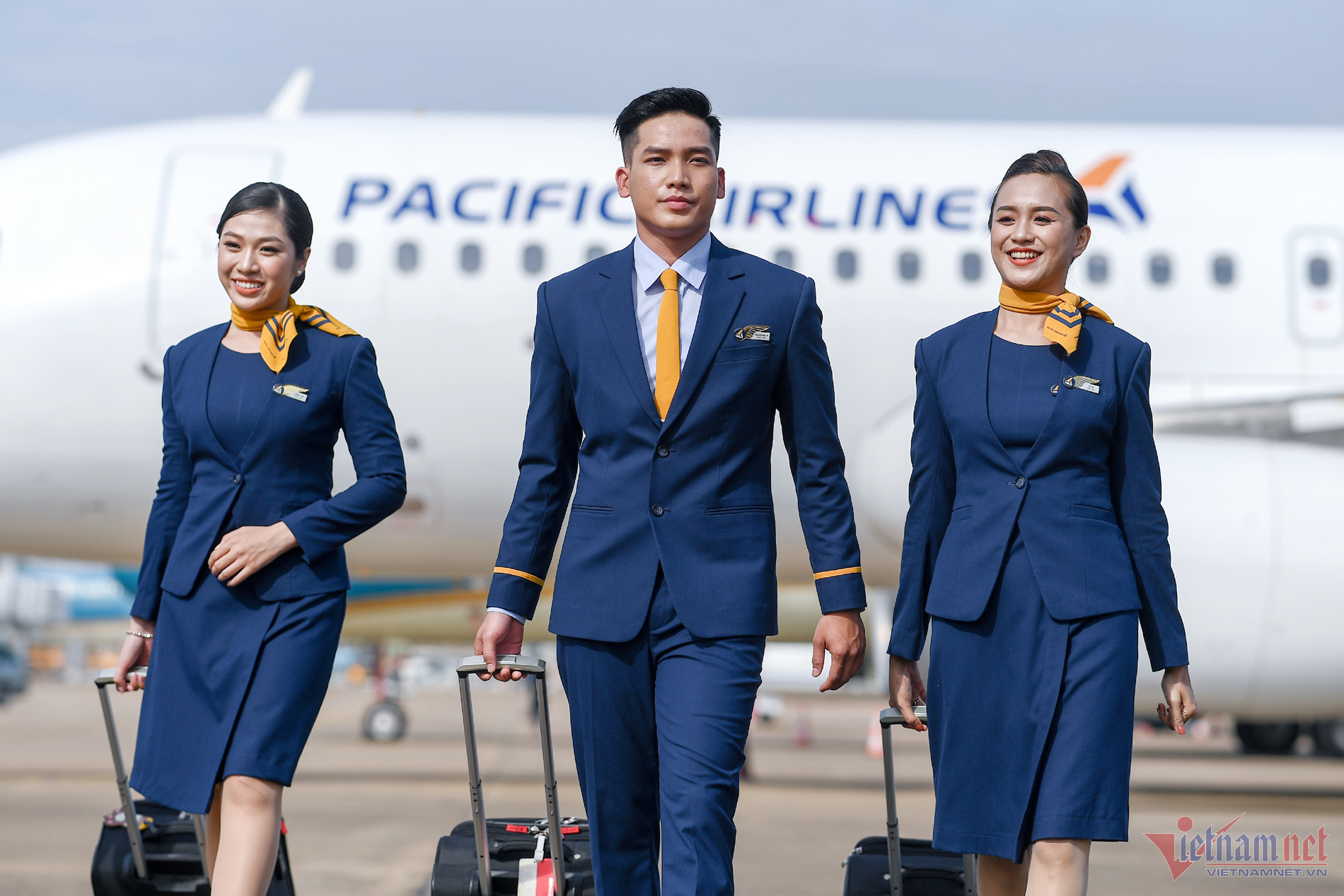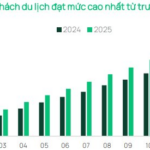A major Vietnamese airline has no more aircraft due to its heavy debt burden
Continuous restructuring, renaming, and changing ownership have been unsuccessful
Pacific Airlines was established in 1991 by Vietnam Airlines and Saigontourist with a total initial capital of VND 40 billion.
After years of poor business performance and losses, in early 2005, the Government had to transfer 86.49% of the State capital to the Ministry of Finance for management and restructuring. In August 2006, it was further transferred to the State Capital Investment and Business Corporation (SCIC) for management.
To restructure Pacific Airlines’ operations, the Government agreed to sell nearly 30% of the company’s shares to Qantas Group (Australia). Initially, the Australian aviation giant invested about USD 50 million to own 18% of Pacific Airlines’ shares, then increased its investment to 30%. Accepting this “sell-off” to cut losses, Pacific Airlines had to change its brand to Jetstar Pacific Airlines.
May 2, 2007 marked the establishment of the first low-cost airline in Vietnam, a significant turning point for Pacific Airlines. It was also the first Vietnamese airline to receive foreign investments.

Pacific Airlines is in serious financial difficulty and no longer has any aircraft to operate. Photo: Hoang Ha |
However, doing aviation business in Vietnam is not easy. The global economic crisis in 2008, the rising fuel costs, the aging fleet of over 15 years, and operational constraints have caused Jetstar Pacific to continue to incur losses. The accumulated losses from 2005 to 2011 amounted to VND 2.1 trillion.
Jetstar Pacific was at the brink of bankruptcy. At the end of 2011, the company became insolvent with negative equity of over VND 600 billion and accumulated losses of nearly VND 2.5 trillion. Once again, to rescue Jetstar Pacific, in early 2012, the Prime Minister assigned Vietnam Airlines to take over its state capital from SCIC and carry out the second restructuring.
With Jetstar Pacific on board as a major shareholder, Vietnam Airlines collaborated with Qantas shareholders to restructure the airline according to the traditional airline model combined with low-cost carrier (LCC) model. Thanks to this, Jetstar Pacific gradually reduced its losses and started to make profits in 2018 and 2019.
However, years of losses have resulted in a cumulative loss of VND 4.4 trillion for the airline by 2019.
In 2020, the Covid-19 pandemic dealt a heavy blow to Jetstar Pacific. Qantas itself faced numerous difficulties in the domestic market and finally accepted to withdraw from Vietnam, after 13 years of ineffective operations.
On June 15, 2020, Qantas officially withdrew its capital from Jetstar Pacific, and Vietnam Airlines owned 98% of the low-cost airline’s shares. Jetstar Pacific rebranded to its previous brand name of Pacific Airlines, with a new logo and identity.
Can it overcome this crisis?
However, during the past two years of the Covid-19 pandemic, Pacific Airlines has faced a crisis with no revenue. By 2022, Pacific Airlines recorded a pre-tax loss of VND 2.096 trillion, although the loss was reduced by nearly VND 212 billion compared to 2019.
It is estimated that Pacific Airlines’ accumulated losses by the end of 2022 will exceed VND 10.7 trillion, and its negative equity will reach VND 6.7 trillion. In addition, according to the consolidated financial statements for Q4/2023 of Airports Corporation of Vietnam (ACV) as of December 31, 2022, Pacific Airlines owes ACV more than VND 874 billion.
Vietnam Airlines, as a major shareholder of Pacific Airlines, is also struggling to escape from its own losses. The annual financial report for 2022 of Vietnam Airlines Corporation (HVN) shows that the company incurred a net loss of over VND 11.2 trillion in 2022, marking three consecutive years of losses and non-compliance with listing criteria on HOSE stock exchange.
Moreover, although Vietnam Airlines is a major shareholder of Pacific Airlines, it is currently unable to divest from the airline due to regulations stated in Decree No. 91/2015 of the Government on the investment of state capital in enterprises and the management and use of capital and assets in enterprises. According to the decree, Vietnam Airlines, a state-owned enterprise holding more than 50% of the charter capital, cannot divest from loss-making enterprises that negatively affect the investment capital of such enterprises.
To divest, Pacific Airlines’ business operations must have two consecutive profitable years before the year of the public offering registration, and there must be no accumulated losses at the time of the public offering registration.
This requirement is not easy to achieve.
Therefore, one of the amendments the Ministry of Finance wants to make to Decree No. 91 is related to the regulation on divestment from loss-making enterprises, which would provide a solution for Vietnam Airlines and other similar cases.
However, the draft decree is currently undergoing the process of gathering opinions and consolidating before being submitted to the Government for consideration, so Vietnam Airlines is still facing difficulties and must continue to manage Pacific Airlines.
Facing severe financial difficulties, cash flow shortages, increasing pressure from debts, Pacific Airlines had to return its entire fleet on March 18. It is estimated that handing back the entire fleet will help the airline eliminate its “huge” debt of several hundred million USD. Initially, Pacific Airlines’ passengers will fly together with Vietnam Airlines until the former completes the procedures to put 3 dry-leased aircraft (aircraft leases without including the crew, maintenance services, or insurance) from Vietnam Airlines into operation.
In the context of the overall difficulties in the Vietnamese aviation market, Vietnam Airlines and Vietjet Air have reduced their fleet due to checks on A321NEO engines, while Bamboo Airways has suspended operations of its Embraer E190 fleet due to restructuring. The fact that Pacific Airlines no longer has any aircraft raises concerns about the supply and increasing prices of airfares, especially during the upcoming peak travel season.
Ngoc Ha












